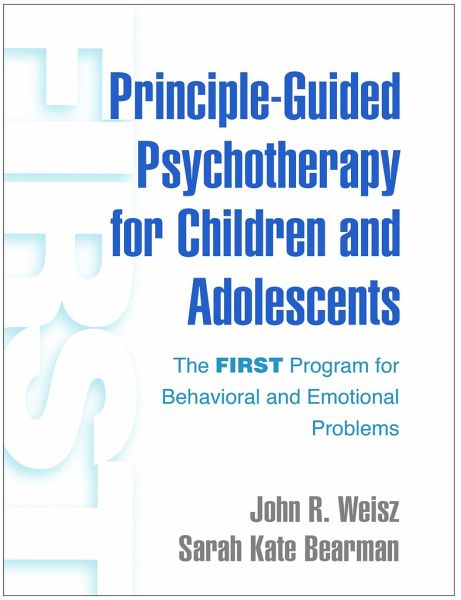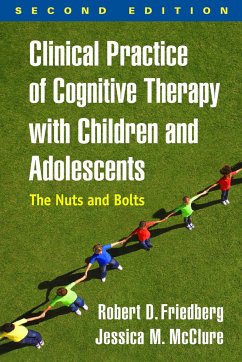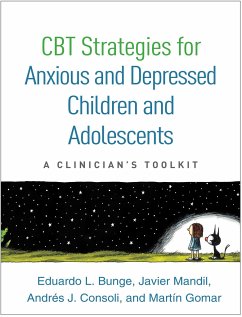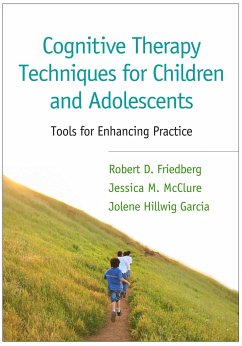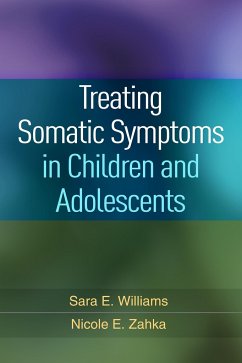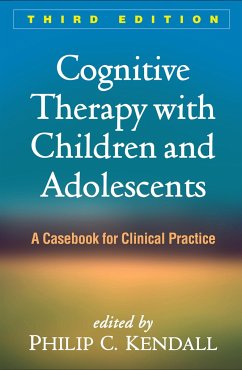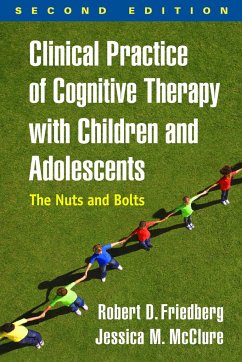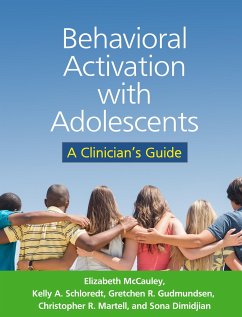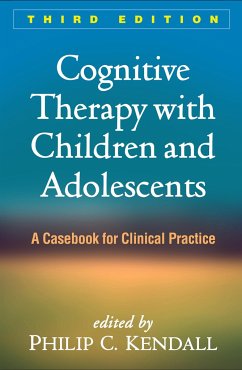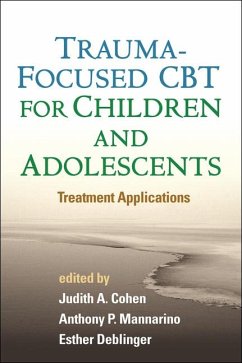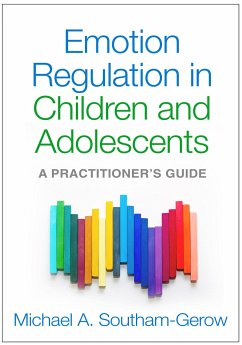John R. Weisz (United States Harvard University)Sarah Kate Bearman (United State The University of Texas at Austin
Broschiertes Buch
Principle-Guided Psychotherapy for Children and Adolescents
The First Program for Behavioral and Emotional Problems
Versandkostenfrei!
Versandfertig in über 4 Wochen
Weitere Ausgaben:

PAYBACK Punkte
20 °P sammeln!




Presenting a fresh approach to child and adolescent therapy, this book identifies five principles at the heart of the most potent evidence-based treatments--and shows how to apply them.
John R. Weisz, PhD, ABPP, is Professor of Psychology in the Department of Psychology at Harvard University, and at Harvard Medical School. He is a past president of the Society of Clinical Child and Adolescent Psychology and the International Society for Research in Child and Adolescent Psychopathology. Dr. Weisz is a recipient of the James McKeen Cattell Lifetime Achievement Award from the Association for Psychological Science, the Klaus Grawe Award for the Advancement of Innovative Research in Clinical Psychology and Psychotherapy from the Klaus Grawe Foundation in Switzerland, and the Sarah Gund Prize for Research and Mentorship in Child Mental Health from the Child Mind Institute's Scientific Research Council. He served for 8 years as President and CEO of the Judge Baker Children's Center, an affiliate of Harvard Medical School. Dr. Weisz's research involves development and testing of psychotherapy programs for children and adolescents, particularly transdiagnostic approaches designed for implementation in clinical service settings, plus meta-analyses to characterize and inform psychotherapy research. His website is https://weiszlab.fas.harvard.edu.âEUR¿ Sarah Kate Bearman, PhD, is Assistant Professor in the School Psychology Program of the Department of Educational Psychology at The University of Texas at Austin (UT Austin), and Assistant Professor in the Department of Psychiatry at UT Austin's Dell Medical School. A clinical child psychologist, she conducts research on factors that support the adoption, implementation, and sustainability of effective mental health services for children and families in complex, low-resource service settings. Dr. Bearman is especially interested in incorporating patient and provider perspectives in the development of interventions to increase goodness of fit, understanding the impact of training and supervision/consultation on psychotherapy, and increasing access to mental health services in nontraditional settings such as schools, child care, and primary care. Her website is https://sites.edb.utexas.edu/leap.
Produktdetails
- Verlag: Guilford Publications
- Seitenzahl: 220
- Erscheinungstermin: 5. Februar 2020
- Englisch
- Abmessung: 266mm x 202mm x 17mm
- Gewicht: 550g
- ISBN-13: 9781462542246
- ISBN-10: 1462542247
- Artikelnr.: 57017133
Herstellerkennzeichnung
Libri GmbH
Europaallee 1
36244 Bad Hersfeld
gpsr@libri.de
Für dieses Produkt wurde noch keine Bewertung abgegeben. Wir würden uns sehr freuen, wenn du die erste Bewertung schreibst!
Eine Bewertung schreiben
Eine Bewertung schreiben
Andere Kunden interessierten sich für



